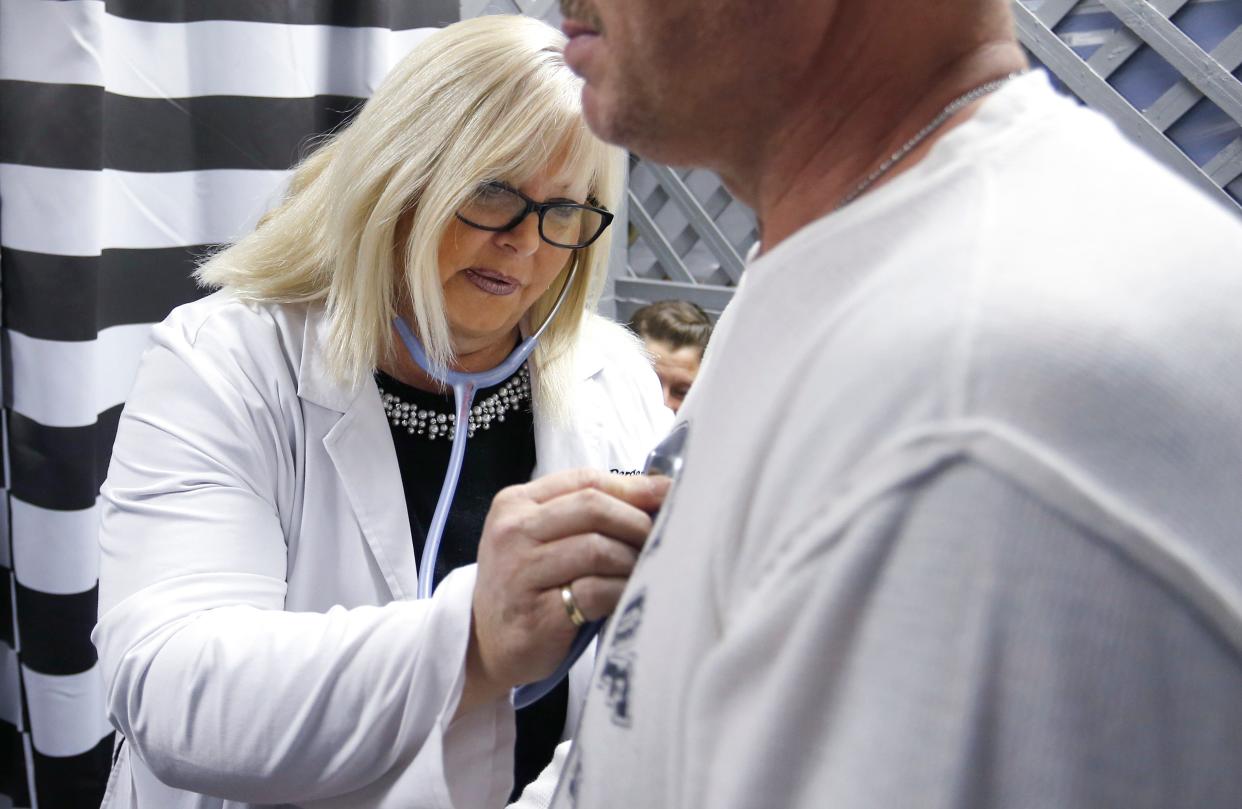Tricia Derges, former Missouri lawmaker, sentenced to prison time in fraud case

Tricia Derges, a former state lawmaker and founder of several medical clinics throughout southwest Missouri, was sentenced Tuesday to six years and three months in prison.
The Nixa Republican was found guilty in June of 22 charges — including wire fraud, illegal distribution of controlled substances and making false statements to investigators — related to financial fraud, illegally providing prescription drugs and lying to patients at her clinics. She was also ordered to pay roughly $500,000 in restitution.
Derges, 65, resigned from the Missouri House of Representatives days after a jury found her guilty following a two-week trial at the federal courthouse in Springfield. She was elected in November 2020.
Derges, who rose to prominence in southwest Missouri through her founding and operation of several medical clinics, was found to have fraudulently obtained federal aid money for her nonprofit clinic, lied to patients about "stem cell" treatments that did not contain stem cells and mixed money between the nonprofit, Lift Up Springfield, and her Ozark Valley Medical Clinic locations.
Federal prosecutors say Derges attempted to fraudulently receive nearly $900,000 in CARES Act funds. They say she applied for the government COVID-19 relief funds through her nonprofit for work that was actually being done (and had been paid for) at her for-profit clinics.
More:Missouri lawmaker Tricia Derges found guilty of wire fraud, illegal prescriptions, lying to feds
Derges was also convicted for a pre-pandemic scheme in which prosecutors say she marketed a stem cell treatment that actually utilized amniotic fluid that did not contain any stem cells. Several victims, who received the treatment thinking it was a stem cell treatment, testified at the trial.
Derges, an assistant physician, also wrote electronic prescriptions for Oxycodone and Adderall for patients without conducting in-person evaluations and transmitted them to pharmacies over the internet.
At Tuesday's hearing, Judge Brian Wimes settled on the six-year, three-month prison sentence after listening to arguments from federal prosecutor Randy Eggert (who asked for eight years in prison) and Derges' attorney Al Watkins (who asked for probation).
Eggert described Derges as an entitled narcissist who purposefully defrauded others for her own benefit.
"The defendant is entitled to neither mercy nor absolution," Eggert said.
Watkins, meanwhile, described his client as a well-intentioned person who battles several serious physical and mental health problems. Watkins asked for leniency because of Derges' age and lack of criminal history.
"She is not a risk to society," Watkins said. "She is not a risk of re-offending."
Derges also addressed the court, touting the thousands of underprivileged individuals she helped through her clinics. Derges thanked her large family, which includes 26 grandchildren, for its support.
Derges apologized but stopped short of taking full responsibility, saying the mistakes she made in this case were made "unknowingly" and without criminal intent.
Judge Wimes would later say Derges did not display "any level of contrition."
"You can't take that next step to own it," Wimes said.
Wimes acknowledged Derges had performed many good deeds in her life but he said he could not be certain she would not re-offend and he wanted a prison sentence to serve as a deterrent for Derges and others who might commit similar crimes.
"This is just a betrayal of public trust," Wimes said.
The U.S. Sentencing Commission provides a guideline range for how long someone should be sentenced for federal crimes based on the facts of the case and the defendant's criminal history. For Derges, the guideline sentence was between just over seven years in prison and nine years in prison. Judge Wimes, who had discretion to consider outside factors and determine where the sentence should land, opted for a sentence just below the guideline range.
This article originally appeared on Springfield News-Leader: Tricia Derges sentenced to prison time for COVID-19 relief fund scheme

